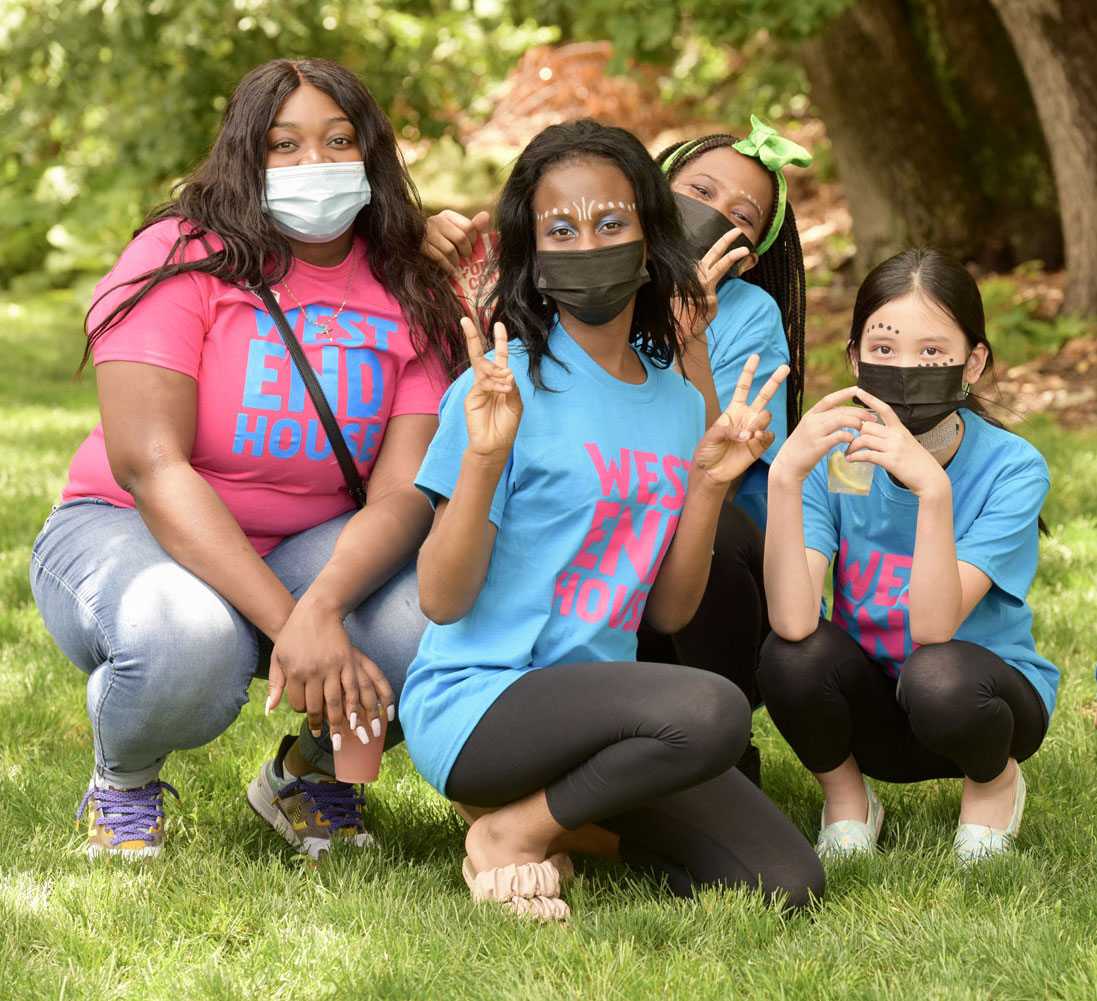The History of West End House

Founding of West End House
In 1906, a group of immigrant boys from the densely populated West End neighborhood of Boston banded together to form a club dedicated to the advancement of its members. They met on the Boston Common, in alleyways and in abandoned buildings to exercise, study history and literature and to forge friendships that would ensure survival in their tough urban neighborhood. Philanthropist James J. Storrow, for whom Storrow Drive is named, was so impressed by their motivation, unity and strength of character that he funded a clubhouse, which became known as The West End House Boys Club.
For over 60 years, the Club served as the cornerstone of the West End neighborhood, serving immigrant boys from Russia, Poland and other European countries. Under the leadership of the first executive director, Mitchell Freiman, and later Jacob “Jack” Burnes and Allie Coles, West End House played a pivotal role in the lives of generations of young men, many of whose family members remain involved today.

Moving to Allston-Brighton
In the 1950’s, the West End neighborhood underwent urban renewal. A plan developed by the Boston Housing Authority involved leveling a 46-acre portion of the West End that housed 2,700 families, and replacing it with only five high-rise buildings. Despite the valiant efforts of residents to save the West End, by 1960, the neighborhood ceased to exist as it once stood.
Although there was no one left to serve in the West End, our leadership was determined to live up to the West End House motto: The Spirit of the House Will Never Die. The Club commissioned a study that revealed Allston-Brighton as home to the largest population of immigrant children and families in need of services.
In 1971, thanks in large part to the efforts and advocacy of Hon. Norman Weinberg, West End House moved to our present location. In 1976, the Club proudly became one of the first in the nation to include girls as full members and changed its name to become West End House Boys & Girls Club.

21st Century
A Timeless Renovation
As West End House moved into the 21st century, its 30 year-old building and programs were in great need of an update. Thanks in large part to the commitment of a core group of board members and the generous contributions of Alan Lewis, Hank Lewis, and Jim Gordon, West End House completed a $7.5 million campaign to renovate and expand its space to host many of the program areas that currently exist today—visual and performing arts rooms, an education center with a computer lab, a commercial kitchen with dining space, and teen leadership spaces. At the completion of the campaign in 2002, the renovated facility was named the Lewis & Gordon Center and featured the Louis I. Kane Youth Leadership Center.

Expect More
In 2015, we launched our $23.5 million Expect More Campaign, a comprehensive campaign designed to:
- Renovate and expand our facility to better meet the needs of our community
- Build significant staff and operating capacity to serve more young people including our growing teen and young alumni community
- Support our capitalization goals by building assets (increasing reserves, decreasing debt) to be in a stronger, more financially sustainable position
Major additions from the Campaign, which was completed in 2018, included greatly enhanced and integrated arts spaces, including the construction of the New Balance Foundation Pavilion, a significant new building addition that integrates with Ringer Park; significantly expanded space for teen and college and career programming; a new Fitness Center to complement our renovated gym and our pool; and expanded Live in Motion café and kitchen to include a new teaching kitchen and new equipment to eliminate disposables, reducing waste by 250,000 lbs. per year.
We invested significant resources in new staff positions, greatly expanding our teen programming and building out our College and Career Pathways team. The physical renovation of our building (new HVAC systems) and financial reserves built up during this time positioned us well for the unforeseen challenges ahead.

Covid Era
Our doors never closed. In fact, they opened wider. In March 2020, West End House redesigned daily operations to meet pressing community needs. Our 115-year history as a nimble, responsive organization prepared us to meet the challenges presented by the twin pandemics.
Pivoting from serving scratch-made meals on site, we innovated and launched our Food for Families program in partnership with the Greater Boston Food Bank in April 2020. We rented two 40-foot freezers in our parking lot and mobilized a small army of staff and volunteers to deliver and distribute full boxes of groceries to 300 families. To meet continued demand, this program has become a permanent part of our operations.
We became the first non-profit to provide on-site, weekly PCR testing early in November of 2020, and became a citywide testing site, and late a citywide vaccination site to keep our community safe.
To address the impact of school closures we created a 10 month, in-person Learning Hub program to support the academic success and well-being of Boston Public School students. The Hubs were essential to our community, providing high-speed internet; access to laptops and Chromebooks; nutritious breakfast bar, lunch, and snacks; and a supportive team of youth development professionals.
In 2022, in recognition of the trauma and mental health challenges that our youth are experiencing, we added a full-time licensed social worker to develop and strengthen a trauma-informed framework within our social-emotional programming. We expanded programs to include therapeutic arts, which is garnering regional attention.